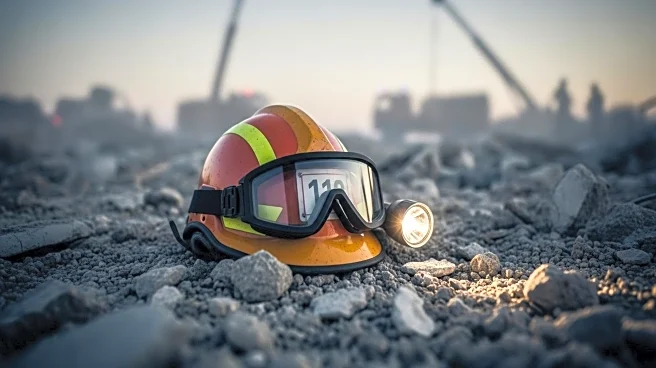What's Happening?
In East Java, Indonesia, a tragic incident has unfolded as a century-old Islamic boarding school collapsed, leaving 91 students trapped under the rubble. The collapse occurred during unauthorized expansion work on the building, which was unable to support the additional floors. Rescue workers, numbering over 300, are working tirelessly to free survivors, with heavy equipment being avoided due to fears of further collapse. The National Disaster Management Agency has confirmed three fatalities and over 100 injuries, many of which are severe. Efforts to provide oxygen, water, and food to those trapped continue as rescuers navigate the challenging conditions.
Why It's Important?
The collapse highlights significant concerns regarding building safety and regulatory compliance in Indonesia. The unauthorized expansion of the school building raises questions about oversight and enforcement of construction standards. This incident could prompt a review of building regulations and safety protocols, potentially leading to stricter enforcement to prevent future tragedies. The impact on the local community is profound, with families anxiously awaiting news of their loved ones. The broader implications may include increased scrutiny on educational institutions and their infrastructure, affecting policy decisions and public trust.
What's Next?
Rescue operations are expected to continue as authorities work to safely extract the remaining trapped students. The incident may lead to investigations into the school's expansion practices and potential legal actions against those responsible for the unauthorized construction. The government might also consider implementing more rigorous safety checks and regulations for educational facilities. Community support and aid for affected families will be crucial in the aftermath, as they cope with the loss and trauma.
Beyond the Headlines
This tragedy underscores the ethical responsibility of educational institutions to ensure the safety and well-being of their students. It may lead to cultural shifts in how school infrastructure is perceived and prioritized, emphasizing the importance of safe learning environments. The incident could also spark discussions on the role of government oversight in preventing such disasters.









